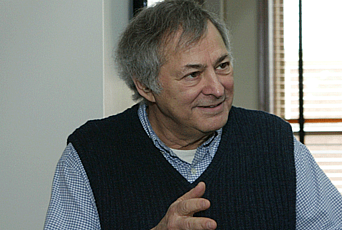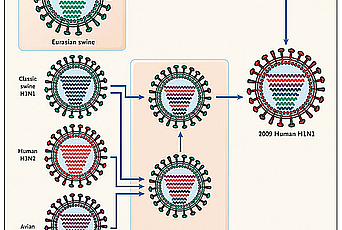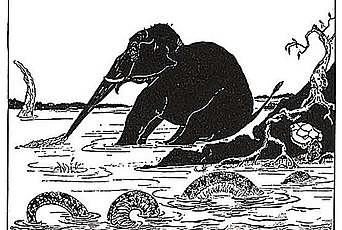Knowledge Beyond Initial Expertise

I arrived at the Institute for Advanced Study in October 2003, after spending two years as a fellow at CERN, the European Laboratory for Particle Physics, in Geneva, Switzerland. For any theoretical physicist the Institute is a mythical place, and the offer to become a Member presented the possibility of a life-changing experience. I had never been to the Institute, and my only references to the place amounted to a few biographies, physics articles related to my own research, anecdotes from colleagues, and my own imagination.
Upon my arrival, I found a small institution (compared to the colossal CERN), vibrant and frenetic with intellectual activity, lost in the peace of the woods of Princeton. The scientific intensity was extraordinary, and almost immediately, I started to collaborate with other Members in the physics group, in astrophysics, and in mathematics. Due to its size, it is almost impossible not to learn from researchers in other fields at the Institute, which provides a unique opportunity to expand the horizons of knowledge beyond one’s original expertise. I remember many conversations with Faculty and Members, the lunches, the walks around the pond while drinking my coffee at 3:00 p.m., and the many friends that I have kept from my first years at the Institute.
In 2005, I attended some lectures on viruses given by Arnold Levine, a Professor in the School of Natural Sciences who heads the Simons Center for Systems Biology. Immediately after these lectures, I became fascinated with biology, and viruses in particular. In my free time, I enjoyed reading books and articles about biology and interacting with the Members in systems biology. In spite of having the name biology in it, the systems biology group is an interdisciplinary team made up mostly of physicists, mathematicians, and computer scientists, with only a few biologists, all interested in obtaining a quantitative understanding of biological problems. With Levine’s scientific guidance and deep biological insights, in a few months, I was passionately absorbed in biology, trying to disentangle evolutionary patterns in RNA viruses, in particular HIV and influenza. It became clear to me that biology was experiencing a revolutionary expansion, with large amounts of unexplored data and the urgent need for theoretical understanding.
At some point, I found myself faced with the dilemma of whether to continue my work in physics in a research position in my native country, Spain, or to accept an offer to stay another three years as an IAS Member in systems biology. Although changing my field of research was obviously risky from a career point of view, I was seduced by the research problems, the approach, and the dynamics of the systems biology group at the Institute.
When Columbia University offered me the possibility of starting a new group in 2008, I could not find a better model than the one I experienced at the Institute. I put together an interdisciplinary team with researchers from physics, astrophysics, computer science, engineering, medicine, and other fields, with the common aim of solving real and important biological problems. I have maintained many collaborative relationships at the Institute, and it is always a pleasure to return and see familiar and new faces.


